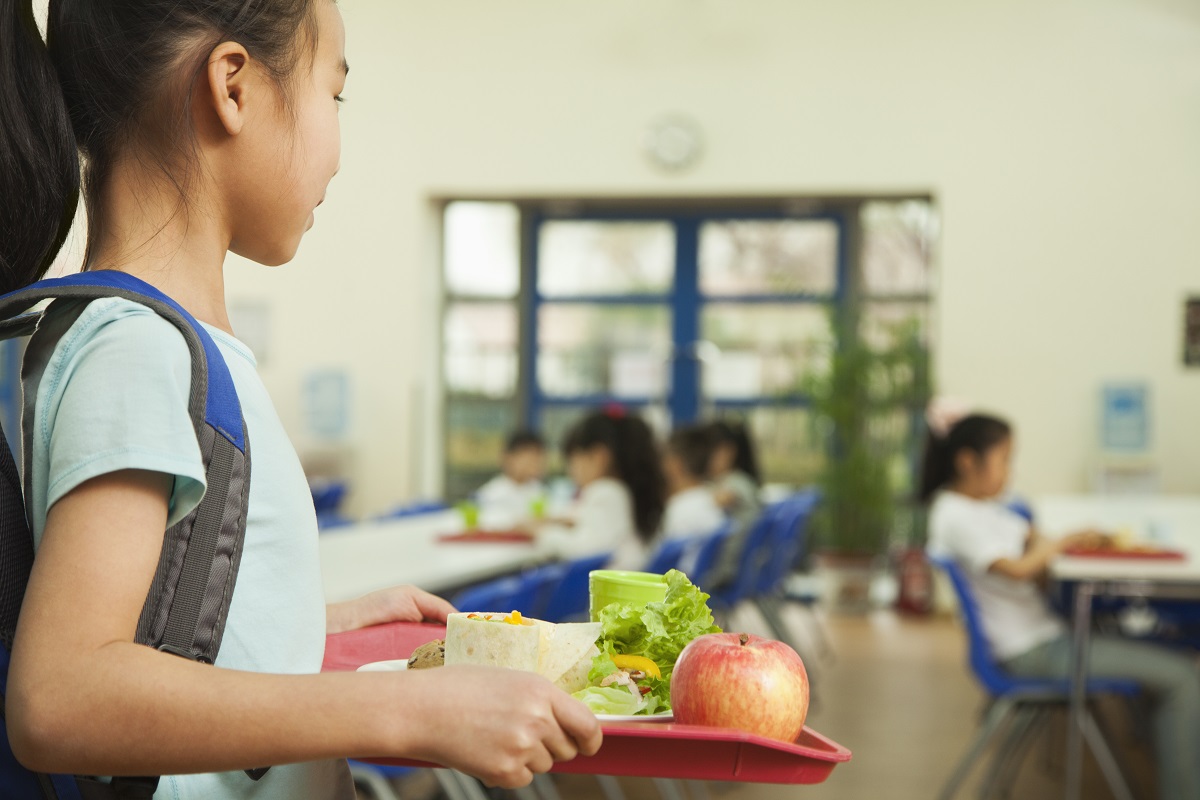There has been a significant decline in student participation in school meal programs since the end of the national universal meals program, according to a report released in June by the Food Research & Action Center (FRAC).
Survey findings from 91 large school districts in 40 states and the District of Columbia detailed continuing challenges impacting operations and participation, including rising food costs, supply chain disruptions and labor shortages. Of the 91 surveyed districts, 58 (64 percent) returned to the free, reduced-price and paid tiered eligibility system and no longer offered free meals to all students in at least one of their schools.
The report shows the average daily participation in school breakfast decreased by more than 100,000 students across all surveyed districts — from 1.84 million students participating in breakfast each day in April 2022 to 1.74 million participating daily in October 2022. Districts also saw a decrease in school lunch participation by over 250,000 students — from 3.61 million children participating in lunch each day in April 2022 to 3.36 million participating daily in October 2022.
“We cannot lose the progress gained with Healthy School Meals for All. The return to pre-pandemic operations results in too many children missing out on the nutrition they need to fuel their health and learning,” Luis Guardia, president of FRAC, said in a statement. “It’s time to move forward with permanent nationwide healthy school meals for all. Bold, permanent legislative action is needed to ensure that all students have access to healthy school meals at no charge. By passing the Universal Free School Meals Program Act of 2023, Congress would help ensure that every student in every state has access to school meals, as well as to the nutrition they need after school, during the summer, and at child care.”
Studies show that when students are hungry in class, their ability to focus, their energy levels and behavior are often negatively impacted, which ultimately leads to declining academic achievement if hunger becomes a regular problem. Recent research also suggests that students with access to universal free meals in kindergarten have better attendance records than children without this access. Overall health outcomes are also better among children with more access to regular, healthy meals.
California became the first state to offer universal school meals — breakfast and lunch — statewide starting with the 2022–23 school year. Colorado, Maine, Minnesota, New Mexico and Vermont have since followed suit.
Most districts included in the FRAC survey reported numerous benefits to offering free school meals to all students, regardless of household income. Among the respondents:
- 88 percent reported that it decreased child hunger
- 86 percent reported that it eliminated stigma associated with school meals
- 86 percent reported that it supported household finances
- 84 percent reported that it eliminated school meal debt
- 79 percent reported that it eased administrative burdens
- 70 percent reported that it improves students’ food and nutrient intake
- 67 percent reported that it strengthens food and nutrition services’ image and relationships
- 65 percent reported that it supports academic achievement
Learn more about state and federal efforts to expand access to school meals, additional benefits of doing so, and the innovation taking place in districts throughout California to ensure meals are as healthy as they are tasty in the winter 2023 issue of California Schools.





